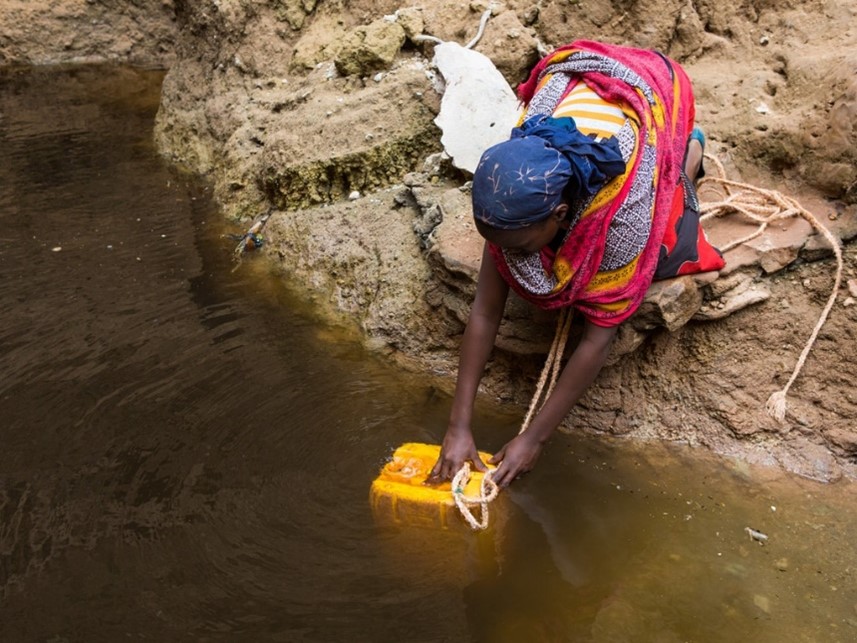The risk of pollution in ground water is increasing. South Africa’s water pollution situation is well-documented, with surface water resources under immense pressure from overuse, pollution and climate change. However, amidst the concerns, the cleanliness of ground water as a source of drinkable liquid remains under threat.
This underground reservoir, accessed through boreholes and springs, serves as a vital backup to the country’s primary water supply and is increasingly becoming a lifeline, especially for rural communities and agricultural operations. Despite its depth and presumed natural protection, groundwater is not immune to contamination, says Charlotte Metcalf, CEO of the South African National Bottled Water Association (SANBWA): “One might think that groundwater is naturally protected, seeing as it resides deep underground. But the influence of human activities is not sparing these underground reservoirs.” GCS Water and Environment CEO Andrew Johnstone agrees: “Because groundwater is an invisible resource, management is more difficult. Where groundwater is located close to human activities it may become contaminated by anthropogenic sources such as sewerage leaks and chemicals (for example pesticides used in neighbouring gardens), making it unfit for human consumption.”
So, ground water is unsafe to drink, this would be especially worrying when you live in a rural area that uses such water. Ground water when it comes to the surface and has been affected by more than sewerage waste can be deadly. The use of chloride can be used to clean harmful chemicals from the water. This should happen after you filter the water of heavier substances and then boil it. This practice once used should kill the harmful bacteria such as the E. coli virus and cholerae. Education about these uses and the resources concerning water should be a priority. Both the state and civil society (NGOs and educational outlets) need to reach out and assist in alerting communities that use ground water. Chief among them as regards the government is the Education and health departments. They could save a lot of lives in the rural areas through education.
A 2021 study published in ScienceDirect titled “Groundwater Contamination in Sub-Saharan Africa” revealed alarming levels of harmful bacteria, such as E. coli, in groundwater sources close to human activity. Households and business premises that utilise boreholes for drinking water must be vigilant; it is crucial for borehole users to not assume the safety of their water, especially if they are near human and/or industrial activities. Regular testing and monitoring of borehole water are essential practices to ensure it remains safe for consumption. Groundwater supplies the majority of small urban and rural communities in South Africa and is critical in agriculture where it is used for livestock and irrigation – the vast majority of famers in Southern Africa rely on groundwater for both domestic consumption and livestock watering.
South Africans need a better way to protect their water sources and be weary of the risks of harmful bacteria. Disease knows no borders and that is why it impacts such a wide area of land. The use of boreholes as a source of water needs to be closely monitored by civil society groups. The concern that harmful bacteria in the water can be deadly needs to be communicated by local doctors. Communities close to industrial or other sources of pollution such as human waste need to be educated about the harmful effects of the diseases, the E. coli can be the least dangerous virus if treated properly with chloride. Boiling the water also helps. More deadly diseases caused by harmful industrial chemicals such as pesticides need to closely monitored by medical personal. The information gathered needs to be communicated to the local community and their authorities.
South Africans in different areas also find themselves without water for several other reasons like natural disasters, damage to infrastructure and electricity outage linked interruptions. With planned water interruptions set to happen due to maintenance in different areas, residents have been asked to store water to ensure that they won’t be caught unprepared. Bronwyn Ragavan, brand manager for Milton cautions that storing water to help mitigate the impact of the water interruptions is not as easy as filling up a container. According to Ragavan, there are specific ways in which to store water properly for longer periods of time so that it can be used safely. “Water is an essential resource, vital for survival and daily activities, and knowing how to store water correctly is crucial for the health of your family,” said Ragavan.
One creative way to collect and conserve water is to use a large rain water tank connected to the drainage. Rain water that is easily collected can be cleaned using specialised chemicals such as chloride. There after boiling water will take care of the last germs and viruses receding there. The shortage in water from the reservoirs can be attributed to climate change. This means more awareness can be made as regards to the harm greenhouse gases are having on the weather. Maintenance of the drainage and water pipes in the cities need to be checked and repaired daily. The government in South Africa is already doing a good job investing in educating the young concerning the harmful effects of dirty water. Cholera and E. coli should be a thing of the past if education about cleaner habits is spread.
Clean water need not be taken for granted as should be good health.
Article written by:
Yacoob Cassim
Journalist at Radio Al Ansaar






